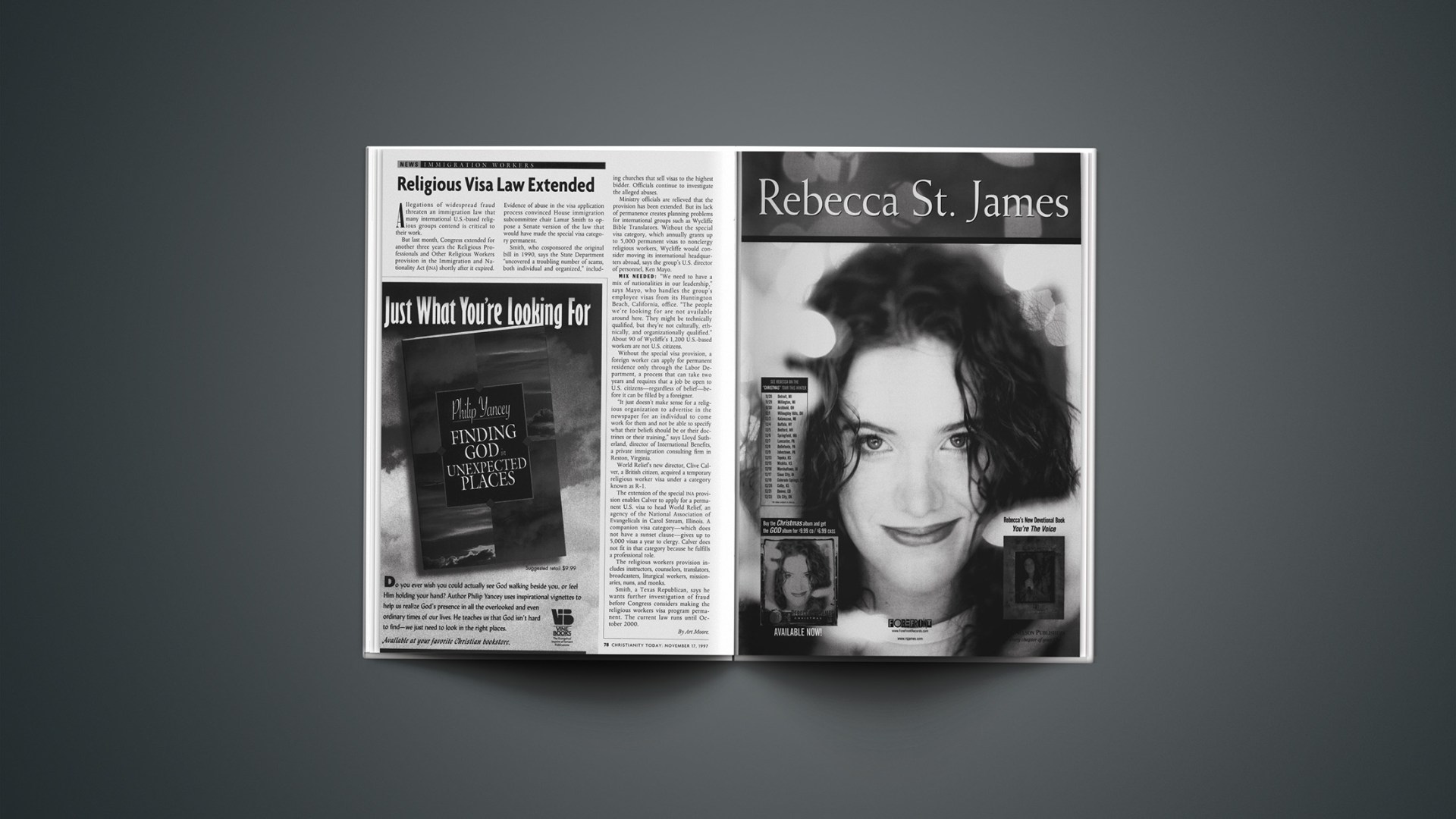Allegations of widespread fraud threaten an immigration law that many international U.S.-based religious groups contend is critical to their work.
But last month, Congress extended for another three years the Religious Professionals and Other Religious Workers provision in the Immigration and Nationality Act (INA) shortly after it expired. Evidence of abuse in the visa application process convinced House immigration subcommittee chair Lamar Smith to oppose a Senate version of the law that would have made the special visa category permanent.
Smith, who cosponsored the original bill in 1990, says the State Department “uncovered a troubling number of scams, both individual and organized,” including churches that sell visas to the highest bidder. Officials continue to investigate the alleged abuses.
Ministry officials are relieved that the provision has been extended. But its lack of permanence creates planning problems for international groups such as Wycliffe Bible Translators. Without the special visa category, which annually grants up to 5,000 permanent visas to nonclergy religious workers, Wycliffe would consider moving its international headquarters abroad, says the group’s U.S. director of personnel, Ken Mayo.
MIX NEEDED: “We need to have a mix of nationalities in our leadership,” says Mayo, who handles the group’s employee visas from its Huntington Beach, California, office. “The people we’re looking for are not available around here. They might be technically qualified, but they’re not culturally, ethnically, and organizationally qualified.” About 90 of Wycliffe’s 1,200 U.S.-based workers are not U.S. citizens.
Without the special visa provision, a foreign worker can apply for permanent residence only through the Labor Department, a process that can take two years and requires that a job be open to U.S. citizens—regardless of belief—before it can be filled by a foreigner.
“It just doesn’t make sense for a religious organization to advertise in the newspaper for an individual to come work for them and not be able to specify what their beliefs should be or their doctrines or their training,” says Lloyd Sutherland, director of International Benefits, a private immigration consulting firm in Reston, Virginia.
World Relief’s new director, Clive Calver, a British citizen, acquired a temporary religious worker visa under a category known as R-1.
The extension of the special INA provision enables Calver to apply for a permanent U.S. visa to head World Relief, an agency of the National Association of Evangelicals in Carol Stream, Illinois. A companion visa category—which does not have a sunset clause—gives up to 5,000 visas a year to clergy. Calver does not fit in that category because he fulfills a professional role.
The religious workers provision includes instructors, counselors, translators, broadcasters, liturgical workers, missionaries, nuns, and monks.
Smith, a Texas Republican, says he wants further investigation of fraud before Congress considers making the religious workers visa program permanent. The current law runs until October 2000.
Copyright © 1997 Christianity Today. Click for reprint information.










